 Life & Style
Life & Style

In its 1050 years existance, the magnificent Ninh Bình enjoyed its incognito status for a thousand years. In the past 50 years, Ninh Bình has seen more economic development and world recognition more ever than before.
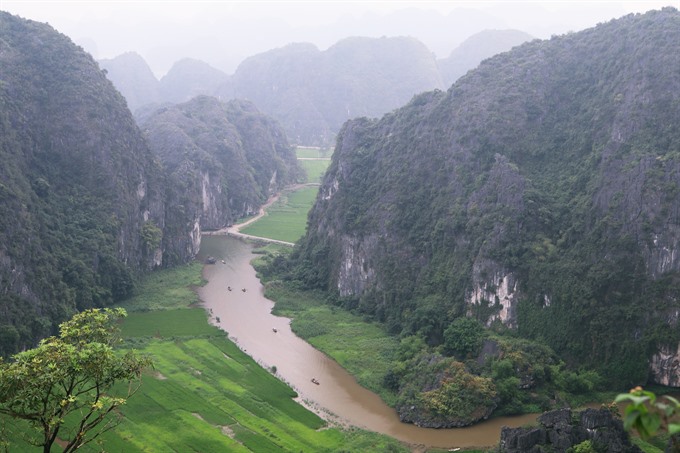 |
| Out of this world: Ninh Bình is well known for its breathtaking sceneries. — VNS Photo Hồng Vân |
NINH BÌNH — For a thousands years Ninh Bình was Việt Nam’s best kept secret.
Hidden away just a few hours from Hà Nội, the rural masterpiece may be small in size and population, but its rugged landscapes offer visitors a massive slice of heaven.
In the past 50 years, Ninh Bình has seen more economic development and world recognition more ever than before.
Hoa Lư of Ninh Bình became the capital of the Great Việt in the 10th century after Đinh Bộ Lĩnh conquered the stagnant warring situation between 12 factions, united them and declared himself Emperor of the Great Việt land.
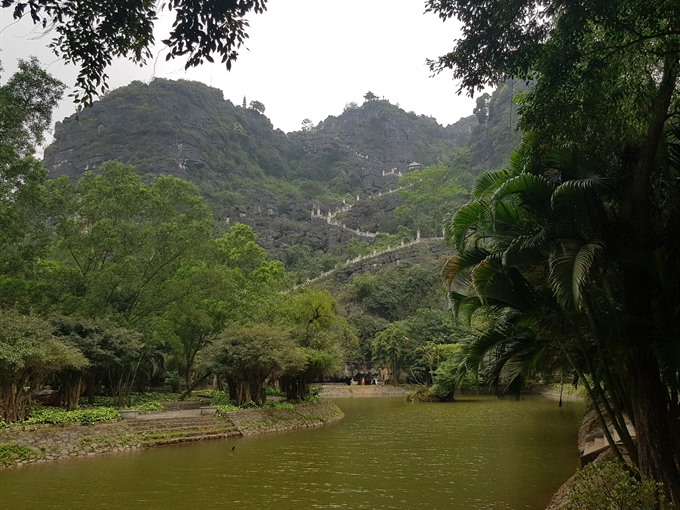 |
| Picture postcard: A zig-zag path leading to the mountain top brings more visitors to the Dance Cave. — VNS Photo Paul Kennedy |
Đinh Tiên Hoàng became the first Emperor after one thousand years under occupation by the Han Chinese.
“Hoa Lư is naturally surrounded by many mountain ranges,” according to historical records. “The mountains and rivers gracefully intertwine, making the region a convenient base camp for both land and river transportation. The forests rest behind Hoa Lư, it faces a large flatland in front, the sea is further out but within reach. This is a magnificent landscape with graceful natural fengshui, it is deserved to become the Emperor’s citadel.”
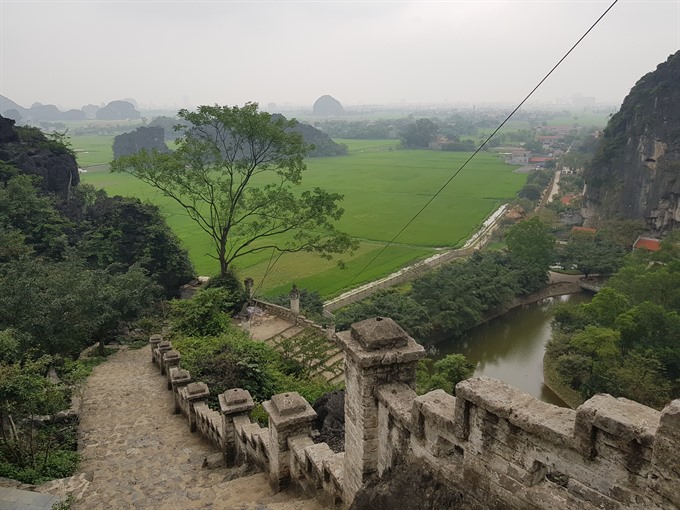 |
| Stairway to heaven: At the foot of Hang Múa staircase. — VNS Photo Paul Kennedy |
Hoa Lư served as capital for 42 years and was home to the founding Đinh dynasty (968-980), the Early Lê (980-1010) and Lý (1009-1225) dynasties.
After King Lý Thái Tổ, also a native Hoa Lư resident, moved the capital to Hà Nội, he decided to build new residences and constructions in Đại La and named them exactly the same as the sites in Hoa Lư.
King Lý Thái Tông, the second king of the Lý Dynasty was born and spent the first 10 years of his life in Hoa Lư. Later, he built One Pilar Pagoda, Đồng Cổ Temple, dug the Lẫm canal to build a fortress, following the military strategy of King Lê Đại Hành.
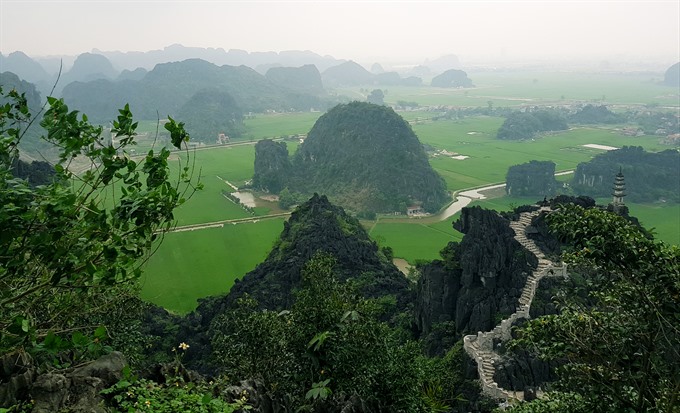 |
| Outstanding: Ranges of moutains make a natural protective walls for Hoa Lư, the citadel. — VNS Photo Paul Kennedy |
In the early years of independence, self-defence was still top priority, so Hoa Lư was perfect for that purpose with natural high mountains scattered on a larger flatland to keep away the attackers. During the 40 year it was capital, it saw continuous war against the northern and southern neighbours.
The significance of Hoa Lư Citadel is that it was built as a self-defense fortress, which did not take any outline of any Chinese citadel. It used natural water flows as the routes to move from east side to the west side and in and out of the larger citadel area. Hoa Lư is a rare military structure set in the beautiful landscape.
In 2014, Hoa Lư together with the greater Tràng An Landscape Complex became UNESCO World Heritage. It was the country’s first mixed heritage of historic and landscaping values. Tràng An was recognised for "its global significance as an outstanding tropical tower-karst landscape in the final stages of geomorphic evolution.
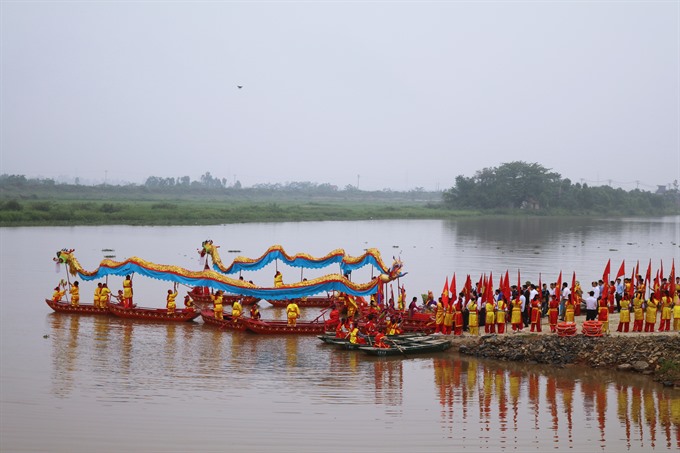 |
| River ritual: A water procession was held on Tuesday’s early morning to wish for peace and happiness for the country and its people. — VNS Photo Hồng Vân |
On UNESCO website, it’s written, "The area is unique in having been invaded by the sea several times in the recent geological past but is now emergent on land. The blend of towering mountains draped in natural rain forest, with large internal basins and narrow cave passages containing quietly flowing waters, creates an extraordinarily beautiful and tranquil landscape."
Other archaeological findings reveal the continuous human occupation dating back to more than 30,000 years.
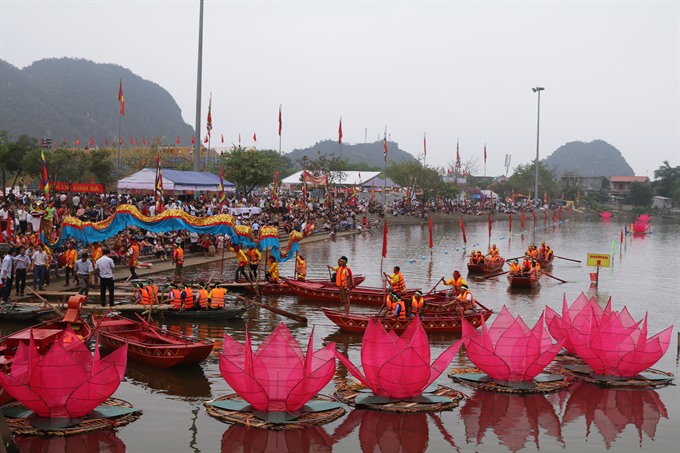 |
| Lots to see: Boat racing, wrestling, human chess and cock fighting are highlights of the Hoa Lư festival. — VNS Photo Hồng Vân |
In 2017, Ninh Bình became known the world around after Hollywood blockbuster Kong, the Skull Island was filmed here. Kong Diretor Jordan Voigt-Roberts became Việt Nam’s Tourism Ambassador and he lived intermittently between Việt Nam and the US.
Now Ninh Bình has become a popular tourist destination. In the 7-day Lunar New Year holiday in February, the number of tourists visiting Ninh Bình soared to more than 736,000 people, marking a 30 per cent increase over the same period last year. By end of February 2018, the number of tourists set a new record of more than 2,3 million.
The sleeping beauty of Ninh Bình has woken up, to see itself surrounded by millions of admirers. — VNS




